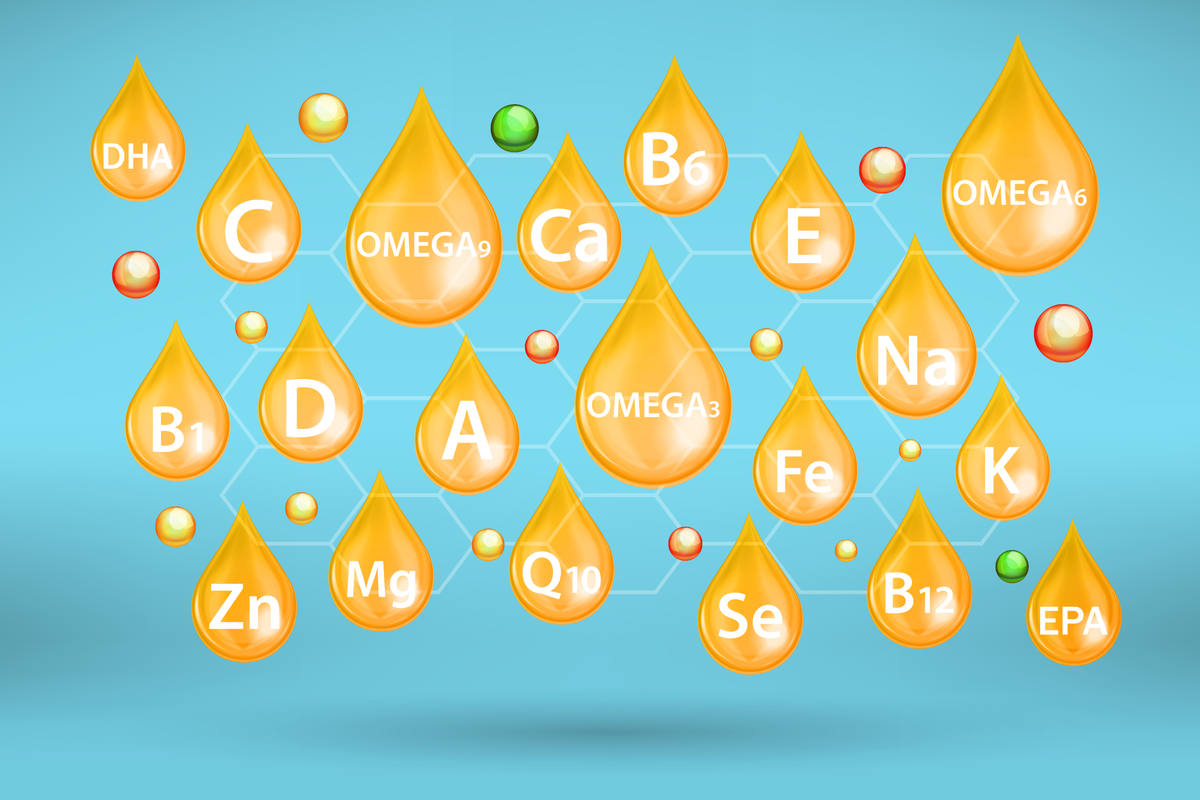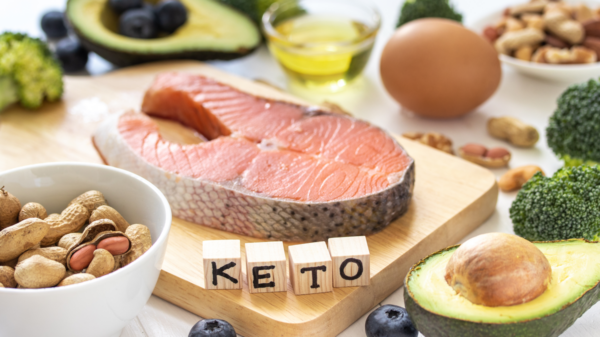To gain optimal health benefits, with the growing age of children, proper vitamins and minerals are also required.
Kids usually obtain a sufficient quantity of nutrients in a nutritious diet, but in some circumstances, children may also require the use of vitamins or minerals supplements.
Nutrient needs for kids
Nutrients that are required for kids are based on their age, sex, size, growth, and activity level.
- As told by health experts, 1,000-1,400 calories every day is needed by young kids from the age of 2 to 8.
- Every day 1,400 to 2,600 calories are required for ages of 9 to 13 due to different factors like activity level.
Kids nutritional needs than adults
Just like adults, kids also require the same type of nutrients but in smaller quantities. As children’s age increases, it is important that they get a sufficient quantity of nutrients in them to help form strong bones like vitamin D and calcium.
For brain development, the minerals choline, zinc, iodine, and vitamins A, B12, B6 (folate), and D are necessary.
So, even though kids do need a sufficient quantity of minerals and vitamins unlike adults, however, they still need these nutrients to promote growth and development.
Do kids need vitamin supplements?
Vitamin supplements are needed for kids that show resistance against healthy dietary habits. But infants need nutrients in different quantities than children and have the need for specific supplements like Vitamin D for breastfed babies.
Supplements are not suggested for healthy kids over the age of 1 that takes a balanced diet by both the United States Department of Agriculture Dietary Guidelines and the American Academy for Pediatrics.
The organizations say that kids obtain nutrition from different vegetables, fruits, dairy, grains, and protein.
In children, these food items are required to obtain maximum development and growth. Kids that eat a proper meal with all the required nutrients and vitamins do not need supplements; however, the following section explains some exceptions.
Some kids may need nutritional supplements
Some conditions warrant the need for supplementation, but still, some children who take healthy food do not have the need for vitamins.
Kids who can form deficiencies undergo this due to lack of specific vitamins and mineral or their supplements, like those who:
- Surgery that affects the stomach or intestines
- Picky when it comes not to eat a variety of food
- Are vegetarians or follow a vegan diet
- Conditions that alter the absorption or increases the requirement for nutrients, like cancer, celiac disease, cystic fibrosis, or inflammatory bowel disease (IBD)
- Kids who do not eat meat or animal products or those who eat vegetarian food usually lack iron, zinc, calcium, vitamin B12, and D.
- Children who take a vegan diet and none of the animal products are more at risk for diseases, especially if nutrients like vitamin B12 are not present or if the food has not been fortified or no supplements have been used.
Serious consequences, like delay in development and abnormal growth, are seen in children who fail to incorporate important nutrients into their diets.
But still, some children do have all the required nutrition that can be obtained from diet alone if they use plant foods that naturally consist of all the needed or fortified minerals and vitamins.
Children suffering from inflammatory bowel disease or celiac do not absorb many minerals and vitamins quite well, like iron, vitamin D, and zinc, which may be because the location that absorbs nutrients from the gut is damaged by these illnesses.
It is seen that kids having cystic fibrosis do not absorb fat well, and in addition, do not absorb fat-soluble vitamins either, like A, D, E, and K. Disease-based malnutrition is avoided by using various supplements in children with cancer and other conditions having the requirement for more nutrients.
Choosing a vitamin and dosage
Vitamins are good for those kids who do not eat everything, have a limited diet, or are unable to absorb nutrients.
Before providing your child with a supplement, do discuss it with a healthcare worker before. When selecting a supplement, use a brand that has already been analyzed by a third party, like United States Pharmacopeia (USP), NSF International, Informed-Choice, ConsumerLab.com, or the Banned Substances Control Group (BSCG).
Vitamins should be used that are specifically for kids use to make sure required doses are present for a child’s daily need, and no extra doses are included.
Top Vitamins and Minerals for Kids
Among the many vitamins and minerals present, some are important for kids during their development.
1. Vitamin A
Vitamin A helps in growth and development for healthy skin, eyes, tissue and bone repair, and immune system. These are present in cheese, eggs, milk, and a range of colored vegetables from yellow to oranges like yams, carrots, and squash.
2. Vitamin B
Metabolism, circulatory system, energy production, and nervous systems are all promoted by vitamin Bs, which are B2, B3, B6, and B12. These are present in meat, fish, nuts, chicken, milk, beans, cheese, eggs, and soybeans.
3. Vitamin C
It helps in the skin, connective tissue, and healthy muscle formation. This is present in kiwi, citrus fruits, tomatoes, strawberries, and green vegetables like broccoli.
4. Vitamin D
It aids the absorption of calcium in the body and helps in bone and tooth development. This is present in milk and fatty fish like mackerel and salmon. Vitamin D is abundantly found in sunlight, which is considered the best source.
5. Calcium
Calcium forms strong bones in children of growing age. This is rich in milk, yogurt, tofu, cheese, and calcium-fortified orange juice.
6. Iron
Iron forms muscle and are important for forming red blood cells. Iron deficiency is an increased risk for adolescence, usually for girls that start their menstrual cycles. This is found abundantly in meats like beef or red meat, pork, turkey, beans, spinach, and prunes.
Increased doses of vitamins, also known as Megavitamins, are not considered good for children. Chances of toxicity increase in kids with more intake of fat-soluble vitamins like A, D, E, and K. same goes for iron intake.
Vitamin and mineral precautions for children
Large quantities of mineral or vitamin supplements are considered toxic for small children. This concept is true for fat-soluble vitamins A, D, E, and K, reserved within the body fat.
Multivitamin Gummies
A case study tells about a child that took a large quantity of vitamin D supplement that resulted in toxicity. Multivitamin Gummies are easy to overeat. A study showed children with vitamin A toxicity just because they ate too many candy types’ vitamins. Vitamins should be kept away from the reach of small kids, and older kids should be informed about appropriate vitamin use to avoid incidents of overeating.
If your child has ingested large amounts of vitamin or mineral supplements, consult a healthcare provider as soon as possible.
Ensure that your child is getting enough and right nutrients
In order to make sure that your child gets a sufficient amount of nutrients to avoid using supplements, have them eat a variety of different nutritious foods.
Sufficient vitamins and minerals are obtained by giving appropriate vegetables, fruits, healthy fats, lean proteins, whole grains, and dairy products with meals and snacks. Keep on using fruits and vegetables in different ways and flavors to help your kid consume more of these.
A healthy diet for kids also consists of a limited amount of sugars and processed food items and should mainly consider fruits instead of fruit juices.
But if you ever feel that your kid is unable to attain sufficient nutrients by diet, supplements can be employed as a safe and efficacious way to promote proper nutrients in children.
Ask your kid’s pediatrician if you are worried about the dietary intake of your kid.
Vitamins and Healthy Kids: Tips
If vitamins are used by your kids, do consider these points:
- Keep vitamins out of reach of children, so they don’t think of them as candy.
- Do not force the kid to eat food or use desserts as a bribe to clear away food. Give your child a chewable vitamin after food instead. Absorption of a fat-soluble vitamin is major with food.
- If medication is being used by the kid, do ask the doctor regarding any interactions that may occur with the use of minerals or vitamins. The supplement won’t impact the medication dose of the kid.
- If your kid is unable to consume a pill or liquid supplement, then give him chewable vitamin.
- Unless told by the doctor, give supplements to your kid after the age of 4.
If you want improvement in your kid’s learning and development, healthy nutrition is important. So it is a better strategy to take care of your child’s food habits instead of making use of supplements sold by cartoon characters.












